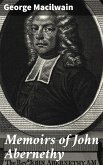In "Saunterings," Charles Dudley Warner presents a delightful collection of essays that capture the essence of 19th-century American life through a lens of natural beauty and social commentary. His prose is characterized by a graceful blend of humor, introspection, and keen observations, inviting readers into the author's contemplative strolls through parks, cities, and the rural landscape. Set against the backdrop of a rapidly industrializing America, Warner's work reflects a profound appreciation for nature and the simple joys of life, while subtly critiquing societal norms and the human condition. Charles Dudley Warner, a contemporary of Mark Twain and an influential figure in American literature, drew inspiration from his own travels and experiences. As a journalist and editor, Warner was keenly aware of the social changes taking place in the United States during his time. His friendships with notable literary figures, combined with his passion for nature and philosophical musings, led him to craft "Saunterings" as both a personal exploration and a commentary on the American spirit. This book is recommended for readers who appreciate essays that intertwine nature and society, as well as those looking to explore the literary voices that shaped American thought. Warner's eloquent prose and thoughtful reflections make "Saunterings" a timeless work that encourages readers to embrace the art of leisure and the beauty of their surroundings.
Dieser Download kann aus rechtlichen Gründen nur mit Rechnungsadresse in A, B, BG, CY, CZ, D, DK, EW, E, FIN, F, GR, H, IRL, I, LT, L, LR, M, NL, PL, P, R, S, SLO, SK ausgeliefert werden.









